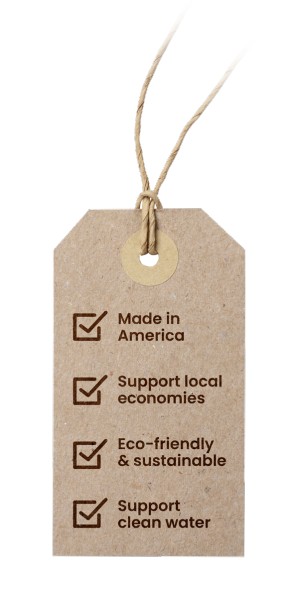On the surface, it may seem that boomers and Gen Z have little in common. But, the protest generation and socially aware Gen Z have more in common than many think. When it comes to leveraging their activism, both generations have been able to create change. It’s not just Gen Z and boomers though. Millennials are also highly attuned to social issues and Gen X is, in its own way, finding opportunities to champion sustainability.
For businesses, this means promoting and communicating any corporate social responsibility efforts can not only attract new customers, but it can also encourage loyalty in existing customers. Consumer activism is on the rise and, looking at 2022, brands and products that ignore those consumer interests can risk alienating consumers. In contrast, investing in practices that reflect their commitment to shared values can create strong ties and brand loyalty.
Each year, we work closely with consumers and monitor behavior, looking for emerging patterns that suggest the trends that will help shape the year to come. These consumer trends can then be leveraged to build and develop the marketing strategies that will bring you success. In 2022, consumer activism will play a significant role in consumer behavior and businesses with clear messaging on their corporate social responsibility will reap the benefits.
What is Corporate Social Responsibility?
Corporate social responsibility or CSR is the principle and practice by which a company participates in initiatives, programs, philanthropy, and business practices that promote positive social engagement across a wide variety of issues. Corporate social responsibility can include everything from internal business policies and procedures to interactions with consumers and stakeholders. Further, socially aware businesses often extend these values into product development including eco-friendly products and packaging. Some common CSR efforts include:
- Leading on fair labor
- Diversity, equity, and inclusion initiatives
- Charitable giving and volunteer programs
- Fair Trade practices
- Environmental stewardship
- Socially aware investments
As noted by the United Nations Industrial Development Organization (UNIDO), corporate social responsibility is part of a triple bottom line approach that helps balance social, environmental, and economic goals. They also highlight a variety of benefits from a fully realized CSR program:
- Increased investment opportunities
- Improved relationships with customers and stakeholders
- Increased sales and profits
- Enhanced brand image and reputation
- Increased customer loyalty
- Productivity, safety, and quality improvements
Corporate social responsibility, therefore, has the opportunity to be beneficial for everyone. Understanding what consumers expect and how consumers view businesses and brands with CSR programs and policies has the potential to create new opportunities in both product development and customer relationships.
 What is Consumer Activism?
What is Consumer Activism?
If CSR is the business vehicle for impacting change on both environmental and social issues, then consumer activism is the corresponding activity for customers. Consumer activism is defined by consumer behavior, through either positive or negative reinforcement (purchase or boycotts), that attempts to steer businesses and brands to act responsibly when it comes to the social and environmental issues consumers are invested in.
As our research demonstrates, consumers are seeking out the products, brands, and services that reflect their values. Consumer effort to direct corporate policies and drive business practices through the marketplace defines the consumer activism movement.
Consumer Trends: Corporate Social Responsibility and Consumer Activism
Consumer activism in 2022 looks a bit different than consumer activism of the past. Rather than predominantly consisting of brand and product boycotts designed to discourage poor corporate behavior, consumers seem to be shifting to a “carrot” approach. They’re spending their money with organizations and businesses to reward their support for the causes that reflect their values. In fact, the use of purchasing power to steer brands partnered with growing consumer expectations regarding corporate social responsibility has shifted the landscape over the last few years. Now, as the purchasing power of both millennials and Gen Z grows, and as they become a coveted market segment, businesses will need to adjust their strategies to appeal to their activism.
Shared Values
Perhaps one of the most noticeable ways consumers are exerting their social awareness and social influence on brands, products, and services is shopping with brands and for products that demonstrate shared values. This is particularly true for the aforementioned millennials and Gen Z. In short, consumers are looking for brands to use both their resources and platforms to drive action on the issues that are important to them. In fact:
- 64% of consumers feel a brand’s social responsibility efforts are important to them. This number rises to above 67% for millennials and Gen Z
- 50% of consumers believe brands should promote the issues they value on social platforms. That number increases to nearly 65% among both millennials and Gen Z
- 79% of consumers feel brands have the resources to make a difference in the causes that matter to them. That number rises to above 80% for millennials and Gen Z
This makes one aspect of consumer activism quite clear. Consumers are not only paying attention to brand behavior, but they also expect brands to be transparent about their values.
Brand Authenticity
In addition to consumers wanting to share the same values and passion for causes as the brands they love, consumers expect brands to practice what they preach. It’s not enough for a brand to tout its activism or donate funds to causes if the brand itself isn’t authentic in the practice. In fact, consumers are paying attention and social media messaging, while a great first step, isn’t enough. Consumer activists are searching for brands that stand for something and include those values in their business practices. 
- Are made in America
- Support local economies
- Are eco-friendly and sustainable
- Promote or support clean water
Gen Z stands apart in this regard as they are willing to pay a 10% premium, but the causes they embrace are slightly different. They’re looking for brands that support their employees but also mental health and general well-being.
Not only does brand authenticity matter, but your business’ bottom line gets rewarded as well. Success on this front will come from a brand’s ability to not only share values with consumers but tie those values to their brand and communicate that through messaging and marketing.
Eco-friendly Brands and Sustainable Products
While boomers and Gen X have grown up in a world where the specter of climate change has always existed, millennials and Gen Z seem to be far more concerned with climate change. However, consumers across the board are beginning to look at how their consumerism and behaviors impact the environment.
While companies and consumers are still unsure of what best practices to employ to limit their environmental impact, the clear answer, from all parties, seems to be a willingness to do what they can and to have products and purchases support those goals.
There is, however, one thing that seems certain and that is for brands to take responsibility for their environmental impact.
- 83% of consumers believe brands should utilize sustainable practices with 42% suggesting they’d choose sustainable brands over another brand
- 78% want the brands they buy to support Green Initiatives (brands that use clean, sustainably sourced ingredients to protect the earth)
- 79% want the brands they buy to support Blue Initiatives (brands that limit water waste and packaging waste to protect marine life)
Our research revealed a marked shift in the way consumers hold brands and businesses accountable for their environmental stewardship. Learning how consumer behavior is changing in response to these demands can help your business attract and connect with the consumers who are seeking socially responsible and eco-friendly products.

 What is Consumer Activism?
What is Consumer Activism?